第92章
But there lurks at the foundation of this subject an illusion which it is very difficult to avoid.The categories are not based, as regards their origin, upon sensibility, like the forms of intuition, space, and time; they seem, therefore, to be capable of an application beyond the sphere of sensuous objects.But this is not the case.They are nothing but mere forms of thought, which contain only the logical faculty of uniting a priori in consciousness the manifold given in intuition.Apart, then, from the only intuition possible for us, they have still less meaning than the pure sensuous forms, space and time, for through them an object is at least given, while a mode of connection of the manifold, when the intuition which alone gives the manifold is wanting, has no meaning at all.At the same time, when we designate certain objects as phenomena or sensuous existences, thus distinguishing our mode of intuiting them from their own nature as things in themselves, it is evident that by this very distinction we as it were place the latter, considered in this their own nature, although we do not so intuite them, in opposition to the former, or, on the other hand, we do so place other possible things, which are not objects of our senses, but are cogitated by the understanding alone, and call them intelligible existences (noumena).Now the question arises whether the pure conceptions of our understanding do possess significance in respect of these latter, and may possibly be a mode of cognizing them.
But we are met at the very commencement with an ambiguity, which may easily occasion great misapprehension.The understanding, when it terms an object in a certain relation phenomenon, at the same time forms out of this relation a representation or notion of an object in itself, and hence believes that it can form also conceptions of such objects.Now as the understanding possesses no other fundamental conceptions besides the categories, it takes for granted that an object considered as a thing in itself must be capable of being thought by means of these pure conceptions, and is thereby led to hold the perfectly undetermined conception of an intelligible existence, a something out of the sphere of our sensibility, for a determinate conception of an existence which we can cognize in some way or other by means of the understanding.
If, by the term noumenon, we understand a thing so far as it is not an object of our sensuous intuition, thus making abstraction of our mode of intuiting it, this is a noumenon in the negative sense of the word.But if we understand by it an object of a non-sensuous intuition, we in this case assume a peculiar mode of intuition, an intellectual intuition, to wit, which does not, however, belong to us, of the very possibility of which we have no notion- and this is a noumenon in the positive sense.
The doctrine of sensibility is also the doctrine of noumena in the negative sense, that is, of things which the understanding is obliged to cogitate apart from any relation to our mode of intuition, consequently not as mere phenomena, but as things in themselves.But the understanding at the same time comprehends that it cannot employ its categories for the consideration of things in themselves, because these possess significance only in relation to the unity of intuitions in space and time, and that they are competent to determine this unity by means of general a priori connecting conceptions only on account of the pure ideality of space and time.
Where this unity of time is not to be met with, as is the case with noumena, the whole use, indeed the whole meaning of the categories is entirely lost, for even the possibility of things to correspond to the categories is in this case incomprehensible.On this point, Ineed only refer the reader to what I have said at the commencement of the General Remark appended to the foregoing chapter.Now, the possibility of a thing can never be proved from the fact that the conception of it is not self-contradictory, but only by means of an intuition corresponding to the conception.If, therefore, we wish to apply the categories to objects which cannot be regarded as phenomena, we must have an intuition different from the sensuous, and in this case the objects would be a noumena in the positive sense of the word.
Now, as such an intuition, that is, an intellectual intuition, is no part of our faculty of cognition, it is absolutely impossible for the categories to possess any application beyond the limits of experience.It may be true that there are intelligible existences to which our faculty of sensuous intuition has no relation, and cannot be applied, but our conceptions of the understanding, as mere forms of thought for our sensuous intuition, do not extend to these.What, therefore, we call noumenon must be understood by us as such in a negative sense.
If I take away from an empirial intuition all thought (by means of the categories), there remains no cognition of any object; for by means of mere intuition nothing is cogitated, and, from the existence of such or such an affection of sensibility in me, it does not follow that this affection or representation has any relation to an object without me.But if I take away all intuition, there still remains the form of thought, that is, the mode of determining an object for the manifold of a possible intuition.Thus the categories do in some measure really extend further than sensuous intuition, inasmuch as they think objects in general, without regard to the mode (of sensibility) in which these objects are given.But they do not for this reason apply to and determine a wider sphere of objects, because we cannot assume that such can be given, without presupposing the possibility of another than the sensuous mode of intuition, a supposition we are not justified in making.